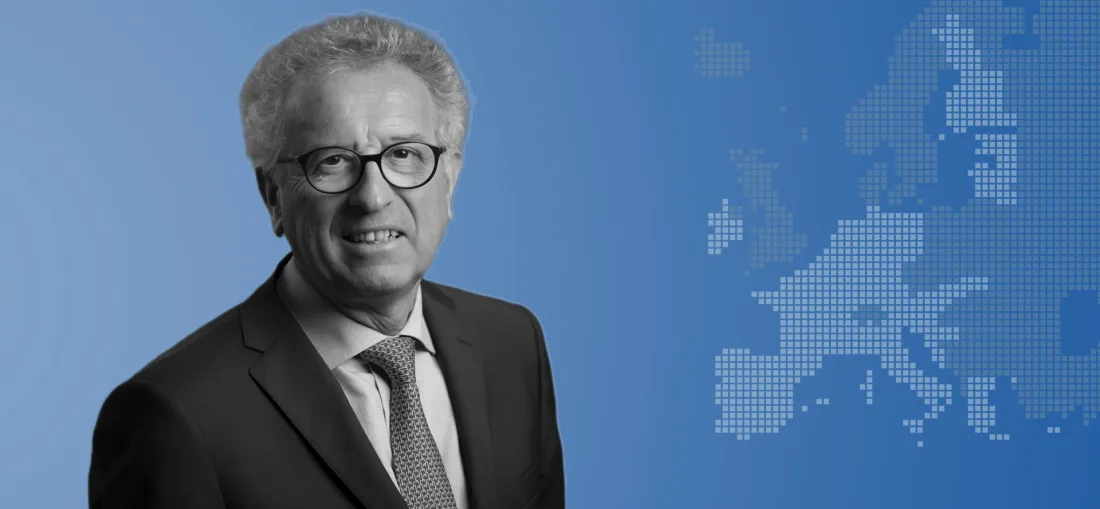Pierre Gramegna in interview with Corriere della Sera (Italy)

Interview with Pierre Gramegna, ESM Managing Director
corriere.it
Published on: 21 January 2024 (conducted: 18 January 2024)
Interviewer: Federico Fubini, Francesca Basso
Original language: Italian
Corriere della Sera: President Giorgia Meloni says that the ESM is obsolete. Is she wrong or is there some truth to this statement?
Pierre Gramegna: More than ten years ago, during the great financial crisis, there was no instrument to help countries that had lost access to financial markets. That's why we created the ESM, which helped five countries with financial support.
The ESM is an act of solidarity born out of necessity, as is often the case in Europe: another example is the Next Generation EU programme created during the pandemic. The risk of a country or countries losing access to financial markets or funding becoming too costly existed before, exists today and will exist in the future.
The ESM makes me think of fire insurance: if you have it and your house doesn't burn down, you are very happy, but you don’t cancel the insurance; vice versa, when the house burns down, you are happy to have insured yourself. In that sense the expression 'obsolete' does not seem to me the most suitable.
As Managing Director of the ESM, you toured the 20 euro area capitals to discuss further adjustments to your institution. Can you tell us about this?
Situations evolve and there is a need to modernise the ESM. The crises of the last three or four years, from Covid to wars, are different from those experienced ten or fifteen years ago.
Today we are dealing with exogenous phenomena. These are situations that the founders of the ESM did not have in mind, but they too entail financial instability risks through no fault of the countries affected.
It is not by chance that the amendments to the Treaty, ratified by 19 countries, aimed to modernise the ESM in various ways.
Can you be more precise?
The main innovation is to create a backstop to the Single Resolution Fund. This makes it possible to replace a direct intervention in the capital of individual banks, which is provided for in the current ESM Treaty.
There is also the preventive aspect: these tools are already in place, but they need to be simplified to better answer to member states’ needs.
The third point is that we have an agreement with the European Commission to find synergies and a more effective programme management.
Unfortunately, these three reforms cannot come into force now. I explained this to our 20 members. I also explained it to President Meloni and Minister Giancarlo Giorgetti.
What ideas do you have for modernising the ESM as Meloni also calls for, adapting it to current needs?
First of all, the idea is to make full use of the new treaty when it is ratified. But many hypotheses emerged from my talks with member states. Some countries mentioned that they were geographically close to Russia and not far from the war in Ukraine. How can the ESM help? Today it is not foreseen. Some countries have certain ideas that I would like to be able to discuss further.
Unfortunately, it becomes difficult as the modernisation decided in 2021 cannot yet come into force.
So, before any new adjustment of the ESM, as Italy demands, do we need ratification of the already agreed reforms? Or can the occasion of Italy's non-ratification be used to reopen the treaty again?
This is a complicated point. As Managing Director, I have to listen to all 20 countries, because the ESM works by consensus.
Minister Giorgetti explained to the Eurogroup on Monday that he would like to further modernise the institution. But 19 other countries say that they have already ratified their modernisation.
Obviously, the lack of Italian ratification slows down the discussion on further steps. We must now evaluate how Italy wants to move forward in the coming months and see with the different countries how they want to organise the discussion.
The ESM is open to holding the necessary discussions, but 19 countries are not very reassured in opening a new negotiation if what has already been agreed cannot be closed.
Particularly on the important point of the backstop that the ESM would provide to the Single Resolution Fund if its resources were depleted in a crisis.
But were you surprised that Italy did not ratify?
Yes, because we had a regular dialogue with the Italian government. And the timing of the vote on the ratification was shifted several times because it depended on other elements.
We had read all this in a quite positive way. We respect the decision of the Italian Parliament, even if it is contrary to what happened in 19 other countries.
Minister Giorgetti explained to the Eurogroup on Monday that legally the Italian government can resubmit the ratification to Parliament after six months. He did not say he will do so. We need to use the next few months to understand how Italy wants to move forward, so that myself and the governments of the other 19 countries can find solutions.
The ESM has a very, very strong structure, with €81 billion in paid-in capital and a lending capacity of up to €500 billion. It would be good to make the best use of it.
Did you believe that after the agreement on the new Stability Pact, ratification by Italy would follow?
Yes, the Italian government mentioned several times that it saw a link between the two. When the agreement was reached, I expected ratification.
Do you think an agreement for a reformed 19-member ESM, without Italy, is possible?
I can't imagine an ESM where Italy is not present. The ESM protects everyone, including Italy.
A solution with 19 seems to me unsound and almost impossible, not only from a political point of view but also from the point of view of international law.
Let us imagine that there is a banking crisis. Would the existing Resolution Fund funded by bank contributions be sufficient? Or is the ESM also needed?
It depends on the type of crisis: whether a crisis only affects one bank, or whether this bank is so big that it produces a domino effect on other banks in the same country or in other countries.
Today the Single Resolution Fund has €80 billion. If the backstop were in place, the ESM could step in to lend up to €68 billion. The resolution fund would have to repay the ESM, so taxpayers' money would be protected.
Today the situation is calm, but crises can come suddenly. Look at what happened to Credit Suisse and what happened in the US last spring.
The Italian Parliament rejected the ratification of the amended Treaty because the ESM is very unpopular in Italy. Are we sure that these suspicions are all undeserved?
The main reason for the somewhat difficult reputation of the ESM is due to the financial assistance to Greece, the country we helped the most.
Greece had followed unsustainable financial policies and lost market access. It had to be helped a lot. And the other countries, as stipulated in the Treaty, asked Athens to make certain reforms that also led to restrictive fiscal policy.
We learned lessons from that, there were things that maybe we would do differently today.
But Greece today is one of the countries that is reducing its debt the most, has one of the highest growth rates in Europe and has regained the confidence of the markets and rating agencies. The other countries that had ESM programmes are also growing more than the euro area average.
Author

Contacts


